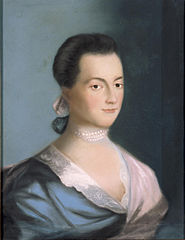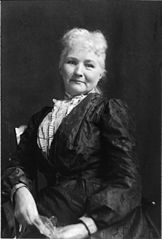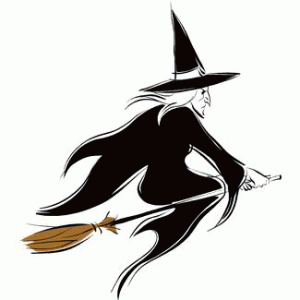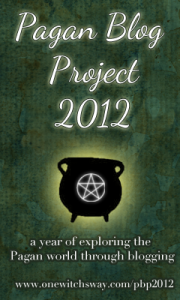 Snowdrops are not the showiest flowers but they’re so welcome here, because they’re the first to bloom. Spring generally comes late in the Adirondacks, sometimes not until May, but this year it’s very early and we have a warm day for our celebration.
Snowdrops are not the showiest flowers but they’re so welcome here, because they’re the first to bloom. Spring generally comes late in the Adirondacks, sometimes not until May, but this year it’s very early and we have a warm day for our celebration.
Category: Uncategorized
Wise Silence
March 12, 2012Defining Ourselves
March 8, 2012

Welcome, Pagan Blog Project!
February 19, 2012Happy Valentine’s Day
February 14, 2012 It’s nice to see the celebration of love flourishing again in the land of Ishtar.
It’s nice to see the celebration of love flourishing again in the land of Ishtar.
It’s Witchcraft
February 12, 2012Sometimes the Monkeys Win One
February 9, 2012A chuckle for those who haven’t seen it yet. Vermont correctional inmates pull an adolescent prank. As a social worker I’ve encountered my share of game players, as well as professionals who became distraught each and every time they were outfoxed. Myself I try not to take it personally and to say, “Oh well, another alcoholic/addict/sociopath tricked me. Isn’t the first time, and it won’t be the last.”
Sometimes It’s Not as Bad as You Think
January 20, 2012 Witchcraft was in the mainstream news last Friday afternoon and as usual I cringed at the headlines, expecting more of the same: some con artist exposed for swindling gullible people through bogus hex claims, a satanic crime syndicate described as witchcraft, or the rantings of a paranoid preacher. Instead, I found a small group of real witches performing a real spell with invited media participation.Witches gathered on Friday the 13th at Crow Haven Corner to help New England Patriots quarterback Tom Brady break the “jinx” that many football fans believe temporarily follows exposure on the cover of Sports Illustrated magazine. Witches showered mojo on all Patriots, especially Brady, to help the team perform well in their Saturday game against the Denver Broncos and legendary quarterback Tim Tebow.Media coverage was largely neutral, with the witches given space to explain and perform their ritual. The witches emphasized that they meant Tebow no harm, but predicted the Broncos would not win. One news headline did make the statement, totally unsupported in the accompanying story, that Salem witches were “hexing Tim Tebow.” Lamentably, it is common for editors to write headlines without bothering to read the articles in their own papers.The magical element in Saturday’s game made good copy, since Tebow is the conservative Christian darling, painting 316 (for Matthew 3:16) into his makeup before the game and getting down on his knees on the playing field to thank the Lord for victory. In Saturday night’s game, the Broncos were routed by the Patriots, 10 to 45. The Patriots reportedly played brilliantly, with Brady passing 363 yards to Tebow’s 145.In the aftermath of the Patriot victory, crickets were chirping in the press regarding witchcraft involvement in the game. Had the Broncos won, the more fanatical Christian types would have loudly declared victory for God and Jesus, as well as the team, but witches are rather skittish about calling attention to their power. It’s just as well; in the larger scheme of things this was only a football game. The greater victory was some unembroidered public exposure. Even much of the Christian media reported it straight.Crow Haven Corner is my favorite occult shop in Salem. I had a psychic reading with Lorelei, one of the organizers of the ritual, a year and a half ago. At that time I met the Fourth Degree canine member of the coven, Chico, who can be seen in the video link lending his support to the Patriots.
Witchcraft was in the mainstream news last Friday afternoon and as usual I cringed at the headlines, expecting more of the same: some con artist exposed for swindling gullible people through bogus hex claims, a satanic crime syndicate described as witchcraft, or the rantings of a paranoid preacher. Instead, I found a small group of real witches performing a real spell with invited media participation.Witches gathered on Friday the 13th at Crow Haven Corner to help New England Patriots quarterback Tom Brady break the “jinx” that many football fans believe temporarily follows exposure on the cover of Sports Illustrated magazine. Witches showered mojo on all Patriots, especially Brady, to help the team perform well in their Saturday game against the Denver Broncos and legendary quarterback Tim Tebow.Media coverage was largely neutral, with the witches given space to explain and perform their ritual. The witches emphasized that they meant Tebow no harm, but predicted the Broncos would not win. One news headline did make the statement, totally unsupported in the accompanying story, that Salem witches were “hexing Tim Tebow.” Lamentably, it is common for editors to write headlines without bothering to read the articles in their own papers.The magical element in Saturday’s game made good copy, since Tebow is the conservative Christian darling, painting 316 (for Matthew 3:16) into his makeup before the game and getting down on his knees on the playing field to thank the Lord for victory. In Saturday night’s game, the Broncos were routed by the Patriots, 10 to 45. The Patriots reportedly played brilliantly, with Brady passing 363 yards to Tebow’s 145.In the aftermath of the Patriot victory, crickets were chirping in the press regarding witchcraft involvement in the game. Had the Broncos won, the more fanatical Christian types would have loudly declared victory for God and Jesus, as well as the team, but witches are rather skittish about calling attention to their power. It’s just as well; in the larger scheme of things this was only a football game. The greater victory was some unembroidered public exposure. Even much of the Christian media reported it straight.Crow Haven Corner is my favorite occult shop in Salem. I had a psychic reading with Lorelei, one of the organizers of the ritual, a year and a half ago. At that time I met the Fourth Degree canine member of the coven, Chico, who can be seen in the video link lending his support to the Patriots.
MLK Day 2012
January 13, 2012
If the commemoration had not been so bitterly fought for, I probably would find myself disliking the holiday altogether, because it seems to me that the further we go in celebrating the man, the further we retreat from his vision. King fought with the African-American people who found themselves at or near the bottom of the have-nots, and at the same time saw beyond this to the evils of having classes of disenfranchised people at all. Ending poverty became an obsession with him, and he said “I’m as concerned about white poverty as much as I’m concerned about Negro poverty” (July 4, 1965, Atlanta). He said “Our only hope today lies in our….declaring eternal hostility to poverty, racism and militarism” (April 4, 1967, New York). Today the income gap between the top 1% and the bottom 99% is the largest since the 1920s. The US military now has the power to detain American citizens indefinitely without trial. Alabama has joined Arizona in a law harassing immigrants for documentation papers. And speaking of documentation, new voting laws disenfranchise the poorest voters, many of whom are African- or Mexican-American, by requiring papers that are difficult for the lowest income people to acquire. All in one year. It’s an anti-Dream trifecta. I understand there’s a popular Broadway play right now about King, and his place as one of the great men in American history remains assured. Nothing wrong with that. Yet there’s something going on here that rubs me the wrong way. How can you exalt a person’s life and at the same time ignore everything they stood for? That’s what we do for one day, every January.
Hello Cool World!
January 6, 2012 Web pages are so much fun. Like interior decorating for people without houses.
Web pages are so much fun. Like interior decorating for people without houses.
In the course of my research I discovered (belatedly) that some women do not like the color pink. Who knew?
However, I am sure that my richly discerning readers will recognize that the background to these blog pages is NOT
PINK. It is a cross between pale salmon and bleached coral.Here’s to a colorful new year!


 The Pagan Blog Project.
The Pagan Blog Project.